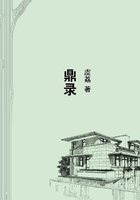As the influence of Spain declined, these excesses of jealousy declined also, till towards the close of the seventeenth century they had wholly disappeared, and their place was taken by that indifference which regarded the 'Cicisbeo' as an indispensable figure in every household, and took no offence at one or two contemporary lovers ('Patiti').
But who can undertake to compare the vast sum of wickedness which all these facts imply, with what happened in other countries? Was the marriage-tie, for instance, really more sacred in France during the fifteenth century than in Italy? The 'fabliaux' and farces would lead us to doubt it, and rather incline us to think that unfaithfulness was equally common, though its tragic consequences were less frequent, because the individual was less developed and his claims were less consciously felt than in Italy.More evidence, however, in favour of the Germanic peoples lies in the fact of the social freedom enjoyed among them by girls and women, which impressed Italian travellers so pleasantly in England and in the Netherlands.And yet we must not attach too much importance to this fact.Unfaithfulness was doubtless very frequent, and in certain cases led to a sanguinary vengeance.We have only to remember how the northern princes of that time dealt with their wives on the first suspicion of infidelity.
But it was not merely the sensual desire, not merely the vulgar appetite of the ordinary man, which trespassed upon forbidden ground among the Italians of that day, but also the passion of the best and noblest; and this, not only because the unmarried girl did not appear in society, but also because the man, in proportion to the completeness of his own nature, felt himself most strongly attracted by the woman whom marriage had developed.These are the men who struck the loftiest notes of lyrical poetry, and who have attempted in their treatises and dialogues to give us an idealized image of the devouring passion--'l'amor divino.' When they complain of the cruelty of the winged god, they are not only thinking of the coyness or hard-heartedness of the beloved one, but also of the unlawfulness of the passion itself.They seek to raise themselves above this painful consciousness by that spiritualization of love which found a support in the Platonic doctrine of the soul, and of which Pietro Bembo is the most famous representative.His thoughts on this subject are set forth by himself in the third book of the 'Asolani,' and indirectly by Castiglione, who puts in his mouth the splendid speech with which the fourth book of the 'Cortigiano' concludes.Neither of these writers was a stoic in his conduct, but at that time it meant something to be at once a famous and a good man, and this praise must be accorded to both of them; their contemporaries took what these men said to be a true expression of their feeling, and we have not the right to despise it as affectation.
Those who take the trouble to study the speech in the 'Cortigiano' will see how poor an idea of it can be given by an extract.There were then living in Italy several distinguished women, who owed their celebrity chiefly to relations of this kind, such as Giulia Gonzaga, Veronica da Correggio, and, above all, Vittoria Colonna.The land of profligates and scoffers respected these women and this sort of love--and what more can be said in their favour? We cannot tell how far vanity had to do with the matter, how far Vittoria was flattered to hear around her the sublimated utterances of hopeless love from the most famous men in Italy.If the thing was here and there a fashion, it was still no trifling praise for Vittoria that she, as least, never went out of fashion, and in her latest years produced the most profound impressions.It was long before other countries had anything similar to show.
In the imagination then, which governed this people more than any other, lies one general reason why the course of every passion was violent, and why the means used for the gratification of passion were often criminal.There is a violence which cannot control itself because it is born of weakness; but in Italy we find what is the corruption of powerful natures.Sometimes this corruption assumes a colossal shape, and crime seems to acquire almost a personal existence of its own.
The restraints of which men were conscious were but few.Each individual, even among the lowest of the people, felt himself inwardly emancipated from the control of the State and its police, whose title to respect was illegitimate, and itself founded on violence; and no man believed any longer in the justice of the law.When a murder was committed, the sympathies of the people, before the circumstances of the case were known, ranged themselves instinctively on the side of the murderer.A proud, manly bearing before and at the execution excited such admiration that the narrator often forgets to tell us for what offence the criminal was put to death.But when we add to this inward contempt of law and to the countless grudges and enmities which called for satisfaction, the impunity which crime enjoyed during times of political disturbance, we can only wonder that the State and society were not utterly dissolved.Crises of this kind occurred at Naples, during the transition from the Aragonese to the French and Spanish rule, and at Milan, on the repeated expulsions and returns of the Sforzas; at such times those men who have never in their hearts recognized the bonds of law and society, come forward and give free play to their instincts of murder and rapine.Let us take, by way of example, a picture drawn from a humbler sphere.
When the Duchy of Milan was suffering from the disorders which followed the death of Galeazzo Maria Sforza, about the year 1480, all safety came to an end in the provincial cities.This was the case in Parma, where the Milanese Governor, terrified by threats of murder, consented to throw open the gaols and let loose the most abandoned criminals.














